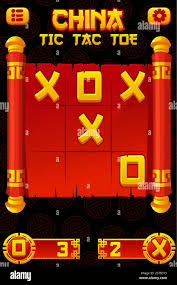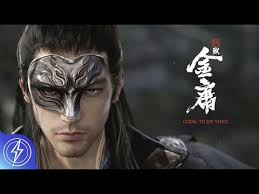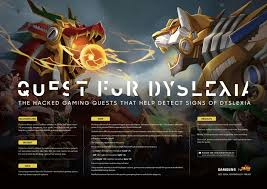In a landmark recognition of its enduring impact and pioneering spirit, “Shenmue,” the 1999 action-adventure title conceived by visionary Japanese game designer Yu Suzuki, has been voted the most influential video game of all time in a recent survey conducted by the prestigious British Academy of Film and Television Arts (BAFTA). The announcement marks a significant moment in gaming history, celebrating a title that, despite its initial commercial challenges, has consistently been lauded for its innovation, ambition, and dedication to immersive world-building.
The game, which follows the compelling journey of young Ryo Hazuki as he embarks on a quest for vengeance against the man who murdered his father, captivated players with its revolutionary open-world design and deeply engaging storytelling. Set in the meticulously recreated Japanese town of Yokosuka, “Shenmue” offered an unprecedented level of interactivity, allowing players to explore a vibrant and believable world filled with realistic characters, detailed environments, and a myriad of activities. The “Shenmue” series, consisting of three installments, was a groundbreaking project from its inception; the first game held the distinction of being the most expensive video game ever produced at the time of its release, a testament to Suzuki’s uncompromising vision and Sega’s willingness to push the boundaries of what was possible in interactive entertainment.
While “Shenmue III” eventually found its way to PlayStation 4 and PC platforms, thanks in part to a successful crowdfunding campaign that demonstrated the enduring passion of its fanbase, the first two games are mainly remembered for their close association with the Sega Dreamcast. This console, released in 1998, was a technological pioneer as the first of the sixth-generation consoles, boasting advanced graphics and online capabilities that were ahead of its time. Although the Dreamcast ultimately met an untimely end, “Shenmue” remains one of its defining titles, a showcase of its potential and a symbol of the innovative spirit that characterized Sega’s final foray into the console market.
“Shenmue” is celebrated not only for its immersive open-world gameplay, which predates many of the genre’s modern staples, but also for popularizing the “quick time event” (QTE), a now-ubiquitous gameplay mechanic where players must execute specific actions within a limited timeframe to succeed in a sequence. While the QTE has become a somewhat controversial element in modern gaming, its initial implementation in “Shenmue” was seen as a revolutionary way to integrate cinematic action into the gameplay experience, blurring the lines between interactive and passive storytelling. The game also featured a sophisticated fighting system, a day-night cycle that influenced character behavior, and a complex web of interconnected characters, each with their own routines and motivations.
Luke Hebblethwaite, head of the BAFTA games division, emphasized the importance of recognizing influential titles like “Shenmue,” stating, “Games are an immensely innovative force, and it’s brilliant to recognize those titles which have truly shaped the course of our medium. ‘Shenmue’ is a perfect example of a game that dared to be different, pushing the boundaries of what was considered possible and leaving a lasting legacy on the industry.”
Yu Suzuki, a legendary figure in the video game industry known for his arcade classics like “Space Harrier” and “Virtua Fighter,” expressed his gratitude for the honor, stating he was “deeply honoured and grateful” that “Shenmue” topped the poll. He also extended his heartfelt thanks to the game’s dedicated fans around the world, whose unwavering support has kept the spirit of “Shenmue” alive for over two decades. Suzuki’s commitment to realizing his ambitious vision, despite the challenges and setbacks he faced throughout the development process, has made “Shenmue” a truly unique and unforgettable gaming experience.
Following “Shenmue” in the survey results was “Doom,” the groundbreaking first-person shooter from id Software released in 1993. “Doom,” known for its adrenaline-pumping action, demonic imagery, and pioneering use of 3D graphics, significantly popularized the FPS genre and established many of its conventions. In third place was Nintendo’s classic platformer, “Super Mario Bros.,” released in 1985, a game that remains one of the best-selling titles of all time and a cultural phenomenon that helped to define the modern video game industry.
Rounding out the top ten most influential games were “Half-Life” (1998), a revolutionary FPS known for its immersive storytelling and seamless integration of gameplay and narrative; “The Legend of Zelda: Ocarina of Time” (1998), a landmark action-adventure game that set the standard for 3D game design; “Minecraft” (2011), a sandbox game that has empowered players to create, explore, and share their own worlds; “Kingdom Come: Deliverance 2” (2025), an upcoming historically accurate RPG that promises to immerse players in a realistic medieval world; and “Super Mario 64” (1996), a groundbreaking platformer that redefined the genre in 3D. The inclusion of “Kingdom Come: Deliverance 2,” an unreleased title, suggests the poll also considered anticipated influence and innovation.
The annual BAFTA Game Awards ceremony is scheduled to take place in London on April 8th, and the legacy of “Shenmue” and its enduring influence on the video game industry will undoubtedly be celebrated. The award serves as a reminder of the power of games to push creative boundaries, tell compelling stories, and leave a lasting impact on both the industry and the players who experience them. “Shenmue,” with its ambitious scope, innovative gameplay, and dedicated fanbase, stands as a testament to the transformative potential of interactive entertainment.
- Language Shift on Steam
- Mandarin (Simplified Chinese) has overtaken English as the most-used language on Steam
- 33.7% of Steam users now use Mandarin, compared to 33.5% using English
- Over 66% of Steam users have a non-English primary language setting

- Factors Driving Chinese Gaming Growth
- Black Myth: Wukong has been a significant catalyst for increased PC and console gaming interest
- Successful Chinese games like Genshin’s Impact, Infinity Nikki, Honkai: Star Rail, and Zenless Zone Zero
- Tencent’s extensive presence in the gaming market
- Observations from Japanese Game Developers

- Chinese game projects are characterized by:
- Significantly larger budgets
- Massive workforce
- More creative freedom
- Willingness to pursue unconventional game concepts
- Broader Mandarin-Speaking Gaming Market
- Beyond mainland China, Mandarin is widely spoken in:
- Taiwan
- Singapore
- Malaysia
- Significant presence in South Korea and Vietnam
The article suggests a transformative moment in the global gaming landscape, with Chinese developers and gamers playing an increasingly prominent role.

- Language Shift on Steam
- Mandarin (Simplified Chinese) has overtaken English as the most-used language on Steam
- 33.7% of Steam users now use Mandarin, compared to 33.5% using English
- Over 66% of Steam users have a non-English primary language setting
- Factors Driving Chinese Gaming Growth
- Black Myth: Wukong has been a significant catalyst for increased PC and console gaming interest
- Successful Chinese games like Genshin’s Impact, Infinity Nikki, Honkai: Star Rail, and Zenless Zone Zero
- Tencent’s extensive presence in the gaming market
- Observations from Japanese Game Developers
- Chinese game projects are characterized by:
- Significantly larger budgets
- Massive workforce
- More creative freedom
- Willingness to pursue unconventional game concepts
- Broader Mandarin-Speaking Gaming Market

- Beyond mainland China, Mandarin is widely spoken in:
- Taiwan
- Singapore
- Malaysia
- Significant presence in South Korea and Vietnam
The article suggests a transformative moment in the global gaming landscape, with Chinese developers and gamers playing an increasingly prominent role.
The Evolution of Chinese Game Development: A Comprehensive Analysis
Historical Context
Historically, the Chinese gaming market was predominantly focused on mobile and online games, with a reputation for producing clone games and free-to-play titles. However, the landscape has dramatically transformed over the past decade, evolving into a sophisticated, innovative, and globally competitive industry.
Key Transformation Phases
1. Mobile Gaming Dominance (Early 2010s)
- Rapid smartphone adoption drove massive mobile game market
- Tencent and NetEase emerged as global leaders in mobile gaming
- Focus on microtransaction-based revenue models
- Primarily casual and multiplayer online games

2. Global Expansion and Investment (Mid-2010s)
- Chinese companies began acquiring international game studios
- Significant investments in game development technologies
- Expansion of game genres beyond traditional mobile platforms
- Growing emphasis on high-quality, narrative-driven experiences
3. Creative Renaissance (Late 2010s – Present)
- Shift from replication to original, innovative game design
- Increased investment in AAA-quality game development
- Strong focus on cultural storytelling and unique artistic styles
- Emergence of globally recognized Chinese game franchises
Technological and Creative Advancements
Game Development Infrastructure

- Massive investments in game development technologies
- World-class animation and graphics capabilities
- Large, skilled workforce with extensive technical training
- Advanced motion capture and rendering technologies
Cultural Storytelling
- Integration of Chinese mythology, history, and cultural narratives
- Games like Black Myth: Wukong showcase sophisticated storytelling
- Global appeal through unique cultural perspectives
- Sophisticated character and world-building techniques
Economic and Industry Factors
Funding and Resources
- Substantial government support for tech and gaming industries
- Venture capital and private investment in game development
- Economies of scale allowing for massive development budgets
- Lower development costs compared to Western markets
Global Market Penetration

- Chinese games gaining international recognition.
- The success of titles like Genshin’s Impact, Honkai: Star Rail
- Expanding market share on platforms like Steam
- Growing export of gaming intellectual property
Challenges and Opportunities
Regulatory Landscape
- Strict domestic game approval processes
- Navigating international market regulations
- Balancing creative freedom with compliance
Future Trajectory
- Continued investment in high-quality, original game development
- Potential for becoming a global game development leader
- Increasing focus on console and PC gaming markets
- Further technological innovation and creative expression

Conclusion
China’s gaming development has transformed from a market focused on replication to a hub of innovation, technological prowess, and creative storytelling. The industry’s evolution reflects broader changes in China’s technological and creative capabilities, positioning it as a significant global player in game development.

Maxthon
Maxthon has set out on an ambitious journey aimed at significantly bolstering the security of web applications, fueled by a resolute commitment to safeguarding users and their confidential data. At the heart of this initiative lies a collection of sophisticated encryption protocols, which act as a robust barrier for the information exchanged between individuals and various online services. Every interaction—be it the sharing of passwords or personal information—is protected within these encrypted channels, effectively preventing unauthorised access attempts from intruders.
This meticulous emphasis on encryption marks merely the initial phase of Maxthon’s extensive security framework. Acknowledging that cyber threats are constantly evolving, Maxthon adopts a forward-thinking approach to user protection. The browser is engineered to adapt to emerging challenges, incorporating regular updates that promptly address any vulnerabilities that may surface. Users are strongly encouraged to activate automatic updates as part of their cybersecurity regimen, ensuring they can seamlessly take advantage of the latest fixes without any hassle.
In today’s rapidly changing digital environment, Maxthon’s unwavering commitment to ongoing security enhancement signifies not only its responsibility toward users but also its firm dedication to nurturing trust in online engagements. With each new update rolled out, users can navigate the web with peace of mind, assured that their information is continuously safeguarded against ever-emerging threats lurking in cyberspace.

The post “Shenmue” Crowned Most Influential Game in Poll appeared first on Maxthon | Privacy Private Browser.